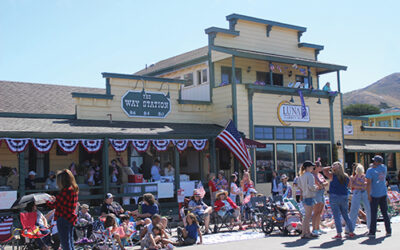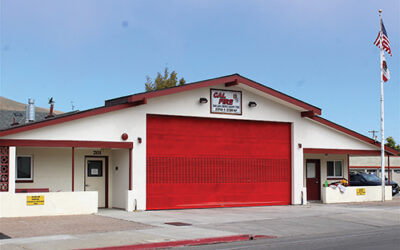The Morro Bay City Council took another step towards reverting its tourism promotions back to the lodging owners under a new non-profit business organization.
The Council’s Aug. 16 actions were mainly housekeeping, as the change back to having the Tourism Business Improvement District (TBID) take back control of marketing was approved some time ago and went into effect in July. “The TBID is now overseen by a non-profit board, as opposed to the City,” City Manager Scott Collins said.
The TBID was first formed in 2009 at the behest of lodging property owners under a 1989 law (that was replaced in 1994 by a new version) and lets assessment districts be formed by private property owners and collected like a tax. The 2009 City ordinance set the tax rate at 3% of the cost of a room night at motels, hotels, B&Bs and vacation rentals.
The change to the new law required dissolving the original assessment district via a Resolution and reforming it under the ‘94 regulations, which Collins said was housekeeping, as the change was already approved.
Also, the TBID’s significant assets automatically transferred over, along with all members within the district. The “disestablishment” Resolution (No. 28-21), sets the hearing for Tuesday, Sept. 14 during the Council’s normal online meeting. Collins said the hearing would essentially take the TBID “off the City’s books.”
The actions are part of a City move to return control over tourism promotions back to the lodging industry, as the scheme was initially set up and operated, with the TBID forming a non-profit governed by one representative board.
Collins said the new TBID board hired Michael Wambolt as its executive director. Wambolt was with Visit SLOCAL — the countywide assessment district — for many years, Collins said, and prior to that did marketing for hotels.
The first Morro Bay TBID made decisions on where to spend advertising monies, supported special events, operated a visitor’s center on Morro Bay Boulevard, and controlled the messaging, too, including catchphrases like “Discover Your Better Nature.”
That system worked well, increasing the occupancy rate and the City’s transient occupancy taxes annually, until about 2016, when the City Council took control over the assessment district.
The City formed a tourism department within the City Administration and for several years oversaw promotions with the TBID board playing a planning and advisory role.
All that blew up in Spring 2020 when the coronavirus pandemic hit and the City locked down, as directed by the Governor, greatly hurting tourism for a few months.
Tourism promotions ground to a halt and the City actually took out ads in the Central Valley discouraging people from coming to Morro Bay. The City also dissolved its tourism department and the marketing company’s contract was suspended from April 2020 to this past Spring 2021.
Though tourism initially tanked under the pandemic response, it rebounded last summer and visitors flocked to a much-changed waterfront. Restaurants were forced to create outdoor dining spaces when the State closed indoor dining for months. That change in itself caused some problems, mostly with trash, as people who normally have sit-down dinners inside, were eating takeout, which significantly increased the amount of trash produced.
The City responded with a “Trash Hero” promotion asking residents and visitors not to litter, put out more garbage cans and brought in portable toilets to compensate for the loss of indoor restrooms at restaurants.
The TBID’s 3% surcharge continued to be collected throughout the pandemic even though no promotions were conducted. Collins said the TBID is currently reviewing applicants for a full time marketing company, and Mental Marketing is back. “The new TBID,” Collins said, “is doing some promotions through Mental Marketing, to include website, social media and influencers.”
The other significant change in all this is that under the new arrangement, the TBID assessment district is for 5 years as opposed to having to be renewed every year. So the next chance for lodging property owners in the assessment district to vote on its continuation would be sometime before the district expires on June 30, 2026.
The 3% TBID charge produces about $1 million a year, a significant amount greater than was formerly spent on tourism promotions, which before the TBID consisted of the City’s Community Promotions Committee, a board of community volunteers and the Chamber of Commerce (to run the visitor’s center), that had limited budgets greatly determined by the health of City finances.
TBID was begun as a way to increase what was a lethargic occupancy rate, and to augment the City’s annual allocations of funds, which it now replaces.



